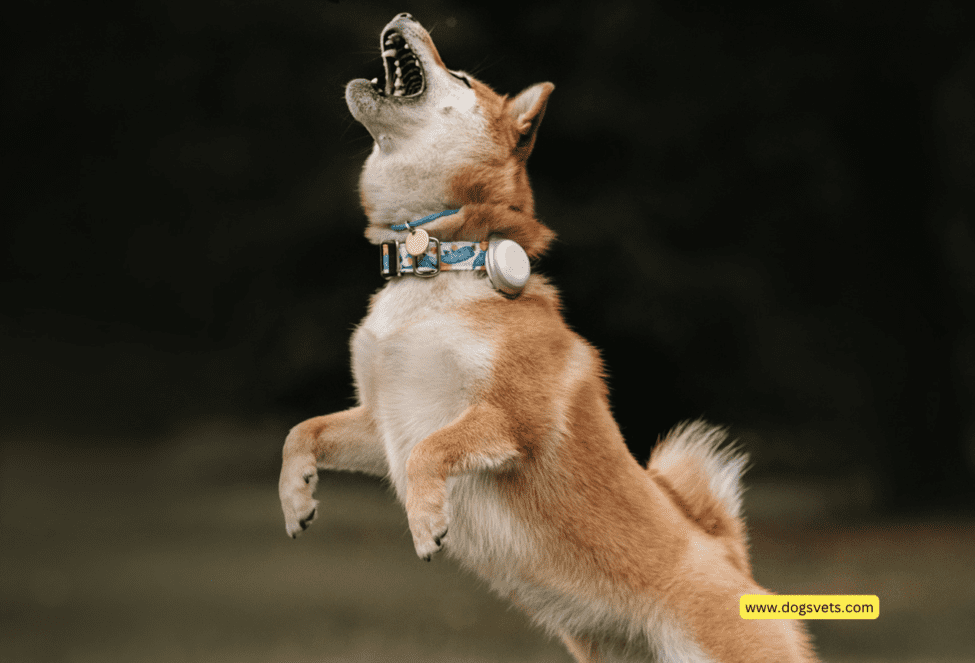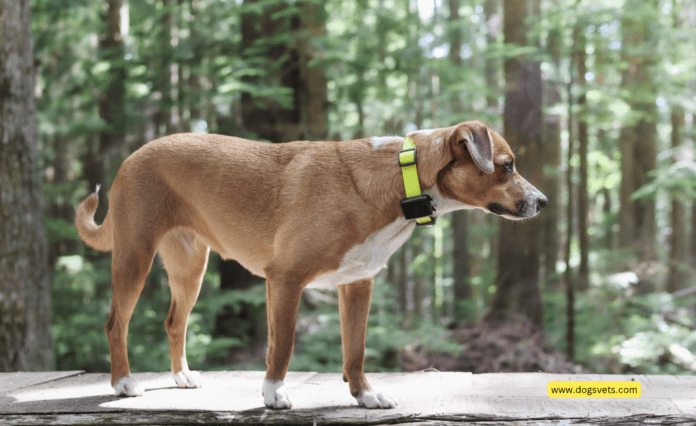Last Updated on November 9, 2023 by Dogs Vets
How Do Dog Tracker Tags Work?
Unveiling the Technology Behind Your Dog’s Safety
In the world of pet ownership, ensuring the safety and well-being of our furry companions remains a top priority. With advancements in technology, dog tracker tags have emerged as a valuable tool for keeping tabs on our canine friends.

These small, lightweight devices attach to a dog’s collar and provide real-time location tracking, offering peace of mind to pet owners alike.
Delving into the Mechanics of Dog Tracker Tags
Dog tracker tags employ a variety of technologies to pinpoint the location of your beloved pooch. The most common methods include:
- GPS (Global Positioning System): GPS trackers utilize the network of GPS satellites to determine your dog’s precise location. These devices are particularly effective in outdoor environments and offer accurate tracking even in remote areas.
- Bluetooth: Bluetooth trackers rely on short-range wireless communication to establish a connection between the tracker and your smartphone. While Bluetooth trackers have a limited range, they are ideal for locating your dog within a confined space, such as a home or backyard.
- Cellular: Cellular trackers combine GPS and cellular technology to provide real-time location tracking, even when you’re not in close proximity to your dog. These trackers require a cellular subscription and are best suited for active dogs who venture beyond familiar surroundings.
Factors Influencing Dog Tracker Functionality
Several factors can influence the effectiveness of dog tracker tags, including:
- Terrain: The type of terrain can impact the signal strength of GPS and cellular trackers. Dense vegetation or urban environments may hinder signal reception, potentially affecting the accuracy of location tracking.
- Battery Life: Battery life varies depending on the type of tracker and usage patterns. GPS trackers typically consume more power than Bluetooth trackers, so it’s crucial to consider battery life when selecting a tracker.
- Network Coverage: Cellular trackers rely on cellular network coverage to function effectively. If you frequent areas with limited or no cellular coverage, a Bluetooth tracker might be a better choice.
Choosing the Right Dog Tracker Tag for Your Needs
When selecting a dog tracker tag, consider the following factors:
- Your Dog’s Activity Level: If your dog is an outdoor enthusiast who frequently roams off-leash, a GPS or cellular tracker is recommended. For indoor or confined use, a Bluetooth tracker may suffice.
- Your Budget: Dog tracker tags range in price from affordable Bluetooth options to more expensive GPS and cellular trackers. Consider your budget and determine which features are most important to you.
- Your Lifestyle: If you lead an active lifestyle and frequently venture outdoors, a tracker with long battery life and reliable signal reception is essential.
How Dog Tracker Tags Enhance Your Dog’s Safety and Well-being
Dog tracker tags go beyond mere location tracking; they offer a plethora of benefits that enhance both your dog’s safety and well-being.
1. Preventing Lost Dog Scenarios
The primary purpose of dog tracker tags is to prevent lost or stray dog situations. By having a real-time view of your dog’s location, you can quickly locate them if they wander off or become separated. This not only prevents the emotional distress of losing your beloved pet but also safeguards them from potential dangers.
2. Monitoring Dog Activity and Behavior
Dog tracker tags can provide insights into your dog’s daily activity patterns and behavior. You can track their distance traveled, pace, and even the intensity of their activity. This information can help you identify any potential health issues or behavioral concerns early on.
3. Enhanced Safety for Off-Leash Adventures
For active dogs who enjoy off-leash adventures, dog tracker tags offer peace of mind and enhanced safety. Knowing your dog’s whereabouts allows you to supervise them remotely and intervene if necessary, preventing potentially dangerous encounters with wildlife or other hazards.
4. Helping Dogs Return Home Safely
If your dog escapes or becomes lost, a dog tracker tag can significantly increase their chances of returning home safely. The ability to track your dog’s location will help you narrow down their whereabouts and guide them back home.
5. Providing Location Information to Search and Rescue Teams
In case of an emergency, dog tracker tags can provide vital information to search and rescue teams, expediting the recovery process and reducing the risk of your dog succumbing to distress or the elements.
6. Enabling Geofencing for Safe Zones
Many dog tracker tags offer geofencing capabilities, allowing you to create virtual boundaries around your home, park, or other safe zones. When your dog strays beyond these boundaries, you’ll receive an alert, enabling prompt action to bring them back to the safe perimeter.
7. Monitoring Dog’s Location in Remote Areas
If you frequently venture into remote or secluded areas with your dog, a dog tracker tag can provide peace of mind and ensure their safety. The ability to track their whereabouts even in areas with limited cellular coverage can be invaluable.
8. Providing Location History for Recall and Training
Dog tracker tags can store your dog’s location history, which can be used for training purposes. By analyzing their past movements, you can identify areas where your dog tends to wander and focus training efforts on those specific locations.
9. Helping Locate Stolen Dogs
Sadly, dog thefts do occur, but dog tracker tags can increase the chances of recovering your stolen pet. By providing real-time location data, law enforcement can quickly track down the stolen dog and return it to its rightful owner.
10. Enhancing Dog’s Overall Well-being
The peace of mind that dog tracker tags provide can significantly impact your dog’s overall well-being. Knowing that they are safe and easily locatable can reduce stress and anxiety, allowing them to relax and enjoy their life more fully.
Conclusion
Dog tracker tags have revolutionized the way we keep tabs on our furry friends, offering peace of mind and enhanced safety for both pets and owners.
By understanding the technology behind these devices and carefully selecting the right tracker for your dog’s needs, you can enjoy the freedom and ease of knowing your beloved canine companion is always within reach.
FAQs
1. Can I use a dog tracker tag to track my cat?
While some dog tracker tags are compatible with cats, it’s crucial to check the manufacturer’s specifications for compatibility. Cats are known for their agility and ability to squeeze into tight spaces, so a smaller, lightweight tracker might be more suitable for feline companions.
2. How secure are dog tracker tags from theft?
Most dog tracker tags are equipped with security features to prevent unauthorized access. Some trackers require a passcode or PIN to activate, while others utilize encrypted communication protocols.
3. How can I protect my dog’s privacy when using a tracker tag?
Reputable dog tracker tag manufacturers prioritize data privacy and security. Check the manufacturer’s privacy policy to ensure your dog’s location data is handled responsibly.
4. Can I use a dog tracker tag to track my dog internationally?
Certain dog tracker tags offer global tracking capabilities, allowing you to monitor your dog’s whereabouts even during international travel. However, some trackers may require additional fees or subscriptions for international usage.
5. What are the legal considerations of using a dog tracker tag?
It’s essential to familiarize yourself with local laws regarding pet tracking devices. Some jurisdictions may have restrictions on the use of tracking technology, particularly in public areas.
6. How can I ensure my dog is comfortable wearing a tracker tag?
Choose a tracker tag that is lightweight, comfortable, and properly sized for your dog’s collar. Introduce the tracker gradually, allowing your dog to acclimate to the new sensation.
7. What maintenance is required for a dog tracker tag?
Regularly check the battery level and ensure the tracker is securely attached to the collar. Clean the tracker periodically to remove dirt or debris.
Fact Check
We strive to provide the latest valuable information for pet lovers with accuracy and fairness. If you would like to add to this post or advertise with us, don’t hesitate reach us. If you see something that doesn’t look right, contact us!






